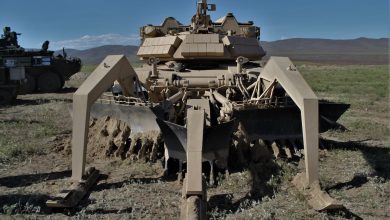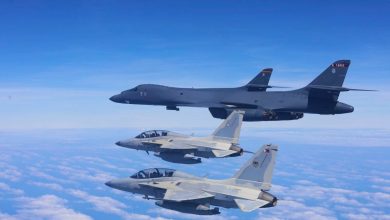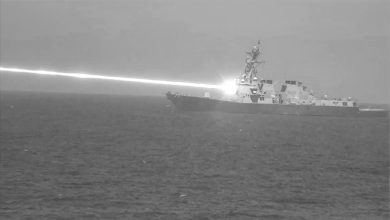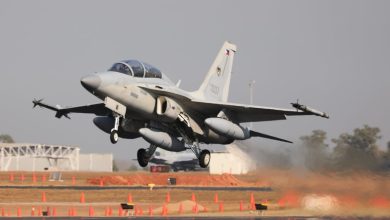France’s military is being ousted from more African countries
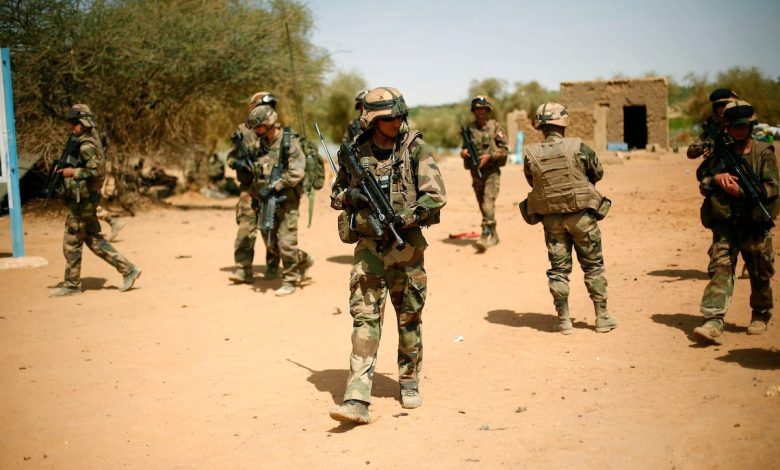
DAKAR, Senegal — It’s been a tumultuous month for France and its relationship with former colonies in Africa, as its influence on the continent faces the biggest challenge in decades.
As Paris was devising a new military strategy that would sharply reduce its permanent troop presence in Africa, two of its closest allies struck a double blow.
The government of Chad, considered France’s most stable and loyal partner in Africa, announced on its Independence Day it was ending defense cooperation to redefine its sovereignty.
And in an interview published hours later by Le Monde, Senegal’s new president said it was “obvious” that soon French soldiers wouldn’t be on Senegalese soil.
“Just because the French have been here since the slavery period doesn’t mean it’s impossible to do otherwise,” President Bassirou Diomaye Faye said.
The announcements came as France was making efforts to revive waning influence on the continent. Foreign minister Jean-Noël Barrot was completing a visit to Chad and Ethiopia, and President Emmanuel Macron for the first time had recognized the killing of as many as 400 West African soldiers by the French Army in 1944.
French authorities stayed silent for almost 24 hours after Chad’s announcement, finally saying they were in “close dialogue” on the future of the partnership.
“Chad’s decision marks the final nail in the coffin of France’s post-colonial military dominance in the entire Sahel region,” said Mucahid Durmaz, a senior analyst at global risk consultancy Verisk Maplecroft, referring to the arid region south of the Sahara.
The decisions by Senegal and Chad “are part of the wider structural transformation in the region’s engagement with France, in which Paris political and military influence continues to diminish,” Durmaz added.
They follow the ousting of French forces in recent years by military-led governments in Niger, Mali and Burkina Faso, where local sentiments turned sour following years of French forces fighting alongside local ones in the face of stubborn Islamic extremist insurgencies.
What is France’s new strategy in Africa?
Jean-Marie Bockel, Macron’s personal envoy for Africa, last month presented to Macron his report on the evolution of the French military presence in Africa.
It was part of the “renewal of our partnership with African countries” that Macron announced in a 2017 speech in Burkina Faso in the early days of his presidency.
The details of Bockel’s report have not been made public. But three French top officials, speaking on condition of anonymity to discuss sensitive talks with the concerned countries, said France aimed for a sharp reduction of its military in all its bases in Africa except the Horn of Africa nation of Djibouti — where Macron is expected to travel in the coming days.
The officials said it doesn’t mean France would necessarily reduce military cooperation but instead would respond to needs expressed by countries. It could mean providing more specific training in airspace surveillance or drones and other aircraft. France also could deploy troops on a temporary basis.
The officials declined to confirm numbers of troop reductions but called it significant.
The French army earlier this year also set up a command for Africa, similar to the U.S. AFRICOM. Newly appointed commander Pascal Ianni specializes in influence and information warfare — a need highlighted by Russia’s growing presence in Africa.
“You can carry on your military cooperation like many countries do. But the idea of having permanent military bases, which then can be used as political ammunition against you and spun up in kind of a disinformation war, is maybe not the best way of going about things,” said Will Brown, a senior policy fellow at the European Center for Foreign Relations.
Meanwhile, France is trying to boost its economic presence in Africa’s anglophone countries like Nigeria, analysts said. Already, its two biggest trading partners on the continent are Nigeria and South Africa.
At the time of Chad’s announcement, Macron was hosting talks with Nigerian President Bola Tinubu.
Where does France have troops in West Africa, and why?
Since the independence of French colonies in Africa, France has maintained a policy of economic, political and military sway dubbed Françafrique, which included having thousands of permanent troops in the region.
France still has 600 troops in Ivory Coast, 350 in Senegal and 350 in Gabon, as well as around 1,500 in Djibouti. It has had 1,000 troops in Chad.
France’s defense ministry said the role of French troops in Africa is to train local soldiers and reinforce their capacities to fight extremism, mainly in peacekeeping, intelligence and logistics. But critics say keeping boots on the ground also has allowed Paris to retain influence and protect political regimes favorable to France.
“The countries of Francophone Africa want a change in the nature of this relationship,” said Gilles Yabi, head of the West Africa Citizen Think Tank.
Why are West African countries expelling French troops?
Growing anti-French sentiment has led to street protests in several West and North African countries, while governments that gained power on pledges of redefining relationships with the West say ties with France have not benefited the population. They want to explore options with Russia, China, Turkey and other powers.
Chad’s President Mahamat Deby “would not have made this decision if he did not have security guarantees from another actor,” Brown said. “We know he’s received serious support from the United Arab Emirates, who are very interested in what’s going on in neighboring Sudan and Darfur. We know that Turkey also made some outreach.”
Chad borders four countries with Russian military presence. In January, Deby traveled to Moscow to reinforce relations with the “partner country.”
Military leaders of Niger, Mali and Burkina Faso who expelled the French military have moved closer to Russia, which has mercenaries deployed across the Sahel who have been accused of abuses against civilians.
But the security situation has worsened in those countries, with increasing numbers of extremist attacks and civilian deaths from both armed groups and government forces. Over the first six months of this year, 3,064 civilians were killed, according to the Armed Conflict Location and Event Data Project, a 25% increase over the previous six months.
It is impossible to say whether the departure of French forces led to the increased violence. But it created a “huge security vacuum,” said analyst Shaantanu Shankar with the Economist Intelligence Unit, adding that it cannot be filled by Russia. Troops from the Russian private military company Wagner are being financed by the junta governments with fewer financial resources, he said.
Read the full article here

